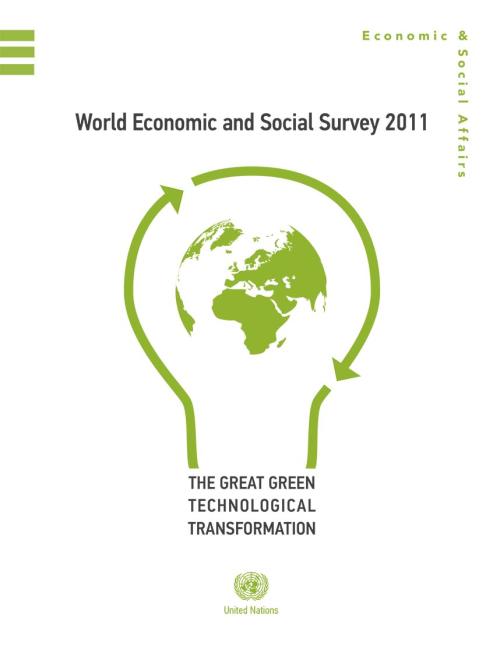Nothing short of a technological revolution on the scale of the first industrial revolution will be required to meet the challenge of sustainable development. Enormous improvements in human welfare have taken place over the past two centuries, but at a lasting cost of degradation of our natural environment. Continuation along established economic growth paths means that the Earth's capacity to ensure human welfare and serve as a sink for the waste and pollution generated in the creation of that welfare will be exceeded.
The World Economic and Social Survey 2011 analyses the challenges and options involved in shifting to a "green economy" based on more efficient and renewable energy technologies, transforming agricultural technologies so as to guarantee food security without further degrading land and water resources, and utilizing technology to adapt to climate change and reduce risks to human populations from natural hazards.
The needed global technological transformation will have to be completed in less than 40 years, that is, twice as fast as it took to accomplish previous major technological transitions. Swift action in creating a global technology development and sharing regime, considerable upgrading of public sector capabilities and significant adjustments in multilateral trade and financing mechanisms will be needed in order to renew Earth's capacity to sustain human life and enable developing countries to undertake the necessary technological transformation - - one that permits them to realize their aspirations towards growth and poverty reduction.
 Welcome to the United Nations
Welcome to the United Nations


